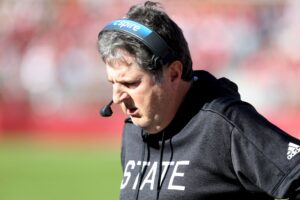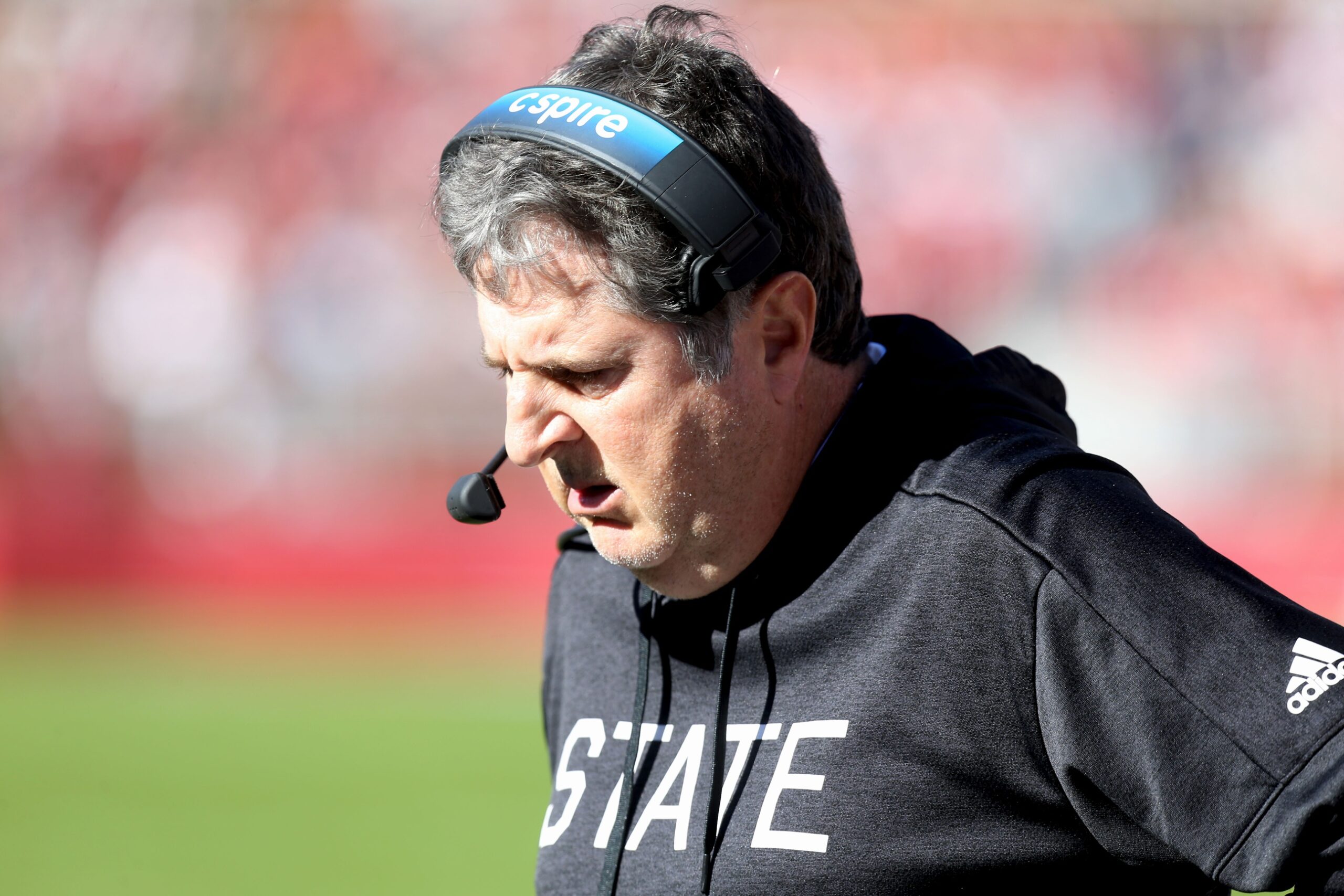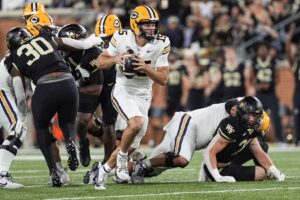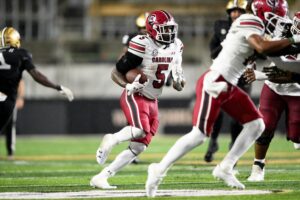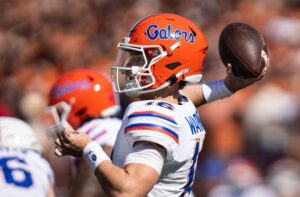Mike Leach was an innovator. He transformed the way football is played. Leach was an outlier, unconventional. We all know he had a complex history. Leach said what was on his mind and didn’t care or was concerned if you were offended. Last week, National Football Foundation president and CEO Steve Hatchell questioned Leach’s Hall of Fame status. In a recent interview with CBS Sports, Hathcell stated that Leach would need a waiver to enter the College Football Hall of Fame.
“If you don’t qualify under one of the criteria, it’s tough. We’ve heard why we should look beyond why someone is not in the Hall of Fame. But at some point, you have to say, ‘These are the rules.'”
The “rules” Hatchell is talking about is winning percentage, one of the criteria used by the committee. To be in the College Football Hall of Fame, a coach needs to have won 60% of his games. Leach is currently at 59.6%. Save us on your “rules,” Mr. Hatchell. It’s like he never benefited from a curve. (We used to call that a Gentleman’s D in school. Thanks, Mr. P).
Although this article may not convince Mr. Hatchell to get off his high horse, perhaps we can convince the other board members to grant Leach a waiver. A board of more than 75 members would need to approve Leach’s Hall of Fame waiver. So, let’s use Leach’s words and look at three reasons why he should be inducted.
The Case for Mike Leach’s Hall of Fame Inclusion
The Air Raid
“Distributing the ball to all the different skill players is our biggest emphasis. We’re not a team that hands it to one guy and throws it to two. We want all five skill positions to touch the ball.”
Simplicity and execution. A play sheet that fits on a 3×5 index card. Anyone who has coached college football knows that coaches can scheme up and complicate what is a beautiful game. This is a key tenet of the Air Raid. Hale Mumme and Leach created the offense in the coaching offices at Iowa Wesleyan University and Valdosta State University. The Air Raid forced defenders to cover the entire field and traded the ground and pound for chucking the ball all over the field.
The Air Raid was initially seen as gimmicky, but it has transformed football. The core philosophy of the Air Raid offense is to spread the field horizontally and vertically, creating space for receivers to exploit one-on-one matchups with defenders. One will be hard-pressed to find offenses that play in a phone booth. The Air Raid transformed high school football. Almost every team in Texas ran some version of “Four Verts” and “Mesh” while Leach was doing it in Lubbock. The influence has spread to both college and the pro game.
Outlier Success
“People ask me, why Washington State?…Well that’s a stupid question.”
Lubbock, Texas. Pulman, Washington. Starkville, Mississippi. Leach never had the luxury of a Nick Saban or Kirby Smart. Being at universities embedded with a rich and robust tradition of winning and located within a fertile recruiting ground. Instead, Leach Cut his teeth where he was the underdog. Leach used under-recruited and overlooked players to battle and knock off the big boys of college football.
Leach posted an 84-43 mark in 10 seasons at Texas Tech. Who can forget the feeling of watching Michael Crabtree tightrope the sidelines, knocking off No. 1 Texas 39-33? Leach never had a losing season in Lubbock. Since Leach left, the Red Raiders have been through four coaches, have not won more than eight games, and have had seven losing seasons.
After Texas Tech dismissed him, Leach took a few seasons off and then headed to Washington State in the Pac-12. Besides giving us a memorable response to who would win in a Pac-12 mascot war, Leach continued to work his magic in the Palouse. Leach was 55-47 in eight seasons at Wazzu. Sure, he had four losing seasons, but he also took the Cougars to six bowl games and had them in contention for the College Football playoff in 2018.
One wonders about Leach’s last stop at Mississippi State. We had just three years of the Pirates in Stark Vegas, but things were trending up. Leach was 19–17 in his three years. We lost Leach shortly after the 2022 season, and the Bulldogs are still trying to recover and find their identity. Leach did it the hard way, but he gave us plenty of memories along the way.
The Coaching Tree
“Never confuse activity with results. However, when we do have staff meetings, we go as long as it takes to accomplish the task.”
The Air Raid and Leach’s legacy did not end on that fateful day in December 2022. Instead, one can look to his coaching tree to see how his impact continues to shape the game. Here is a quick look at some of the names on Leach’s coaching tree:
- Dave Aranda, Baylor Head Coach
- Zach Arnett, Former Mississippi State Head Coach
- Neal Brown, West Virginia Head Coach
- Sonny Cumbie, Louisiana Tech head coach
- Sonny Dykes, TCU Head Coach
- Josh Heupel, Tennessee Head Coach
- Dana Holgorsen, Former Houston, and West Virginia Head Coach
- Kliff Kingsbury
- Seth Littrell,
- Eric Morris, North Texas Head Coach
- Lincoln Riley, USC Head Coach
Last Word on Leach’s Hall of Fame Induction
We can view Hatchell’s arguments about the “rules” the same way as Leach felt about candy corn. “I’ve never liked candy corn. I think it’s just awful.” Swing your sword, coach. Here is to hoping a few pirates swing their swords in your favor!
